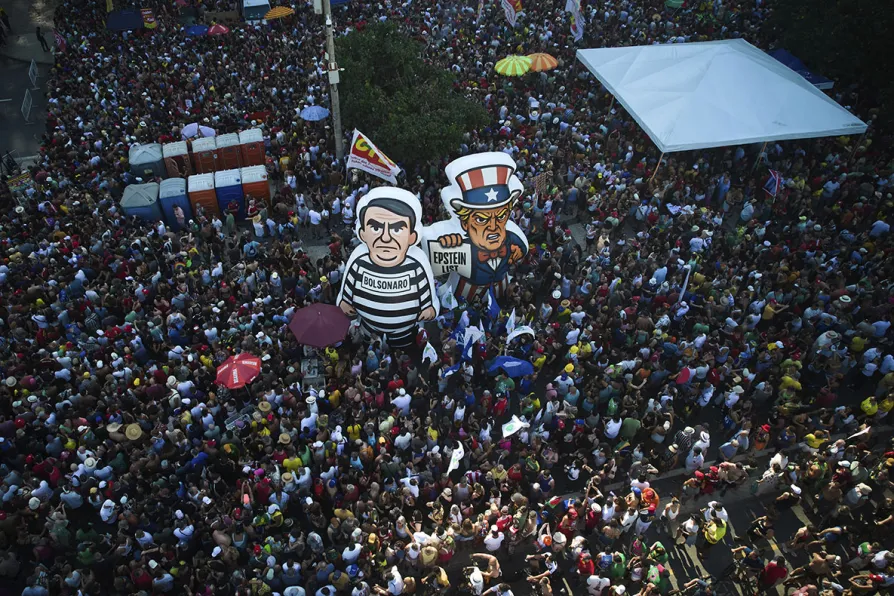
 Demonstrators protest an amnesty bill that could benefit Brazilian former President Jair Bolsonaro and his allies convicted for a coup attempt, among floats of Bolsonaro and U.S. President Donald Trump at Copacabana beach, in Rio de Janeiro, September 21,
Demonstrators protest an amnesty bill that could benefit Brazilian former President Jair Bolsonaro and his allies convicted for a coup attempt, among floats of Bolsonaro and U.S. President Donald Trump at Copacabana beach, in Rio de Janeiro, September 21,
THOUSANDS of people have protested in all of Brazil’s 26 states and the federal district against a possible pardon for former president Jair Bolsonaro and his allies, who were convicted of attempting a coup.
Calls for demonstrations grew after the lower house passed a constitutional amendment last Tuesday that would make it harder to arrest or launch criminal proceedings against politicians. The measure now goes to the Senate.
The following day, the lower house voted to fast-track a Bill backed by right-wing opposition politicians that could grant amnesty to Mr Bolsonaro, his closest allies and hundreds of supporters convicted of involvement in the January 2023 uprising that followed the far-right leader's election defeat.
In Sao Paulo, 42,400 people joined Sunday’s protest, while 41,800 turned out in Rio de Janeiro, according to estimates by the University of Sao Paulo’s Monitor of Political Debate and the non-profit organisation More in Common.
Monitor of Political Debate director Pablo Ortellado told reporters that the numbers in Brazil’s two largest cities were the highest for a left-wing demonstration since President Luiz Inacio Lula da Silva’s 2022 electoral victory. Researchers estimated crowd sizes using drone photos.
“Right-wing mobilisations have typically been three times larger than those of the left,” Mr Ortellado said.
“In recent months, that pattern has changed. The opposition’s support for [US President Donald] Trump’s tariffs and for the amendment has brought the left back to the streets.”
Mr Bolsonaro was sentenced to 27 years and three months in prison on September 11 for attempting to retain power after losing a 2022 bid for re-election.
He is the first former president convicted of trying to overturn an election in Latin America’s largest economy. Mr Bolsonaro has denied any wrongdoing.
Ana Paula Brito, a 37-year-old nanny, attended the Sao Paulo protest mainly to oppose a possible pardon for Mr Bolsonaro. She said she was also outraged by the proposed amendment shielding legislators from prosecution.
“They [politicians] are rich, have plenty of money and keep stealing. No funds are ever released for us. That’s one more reason we’re in the streets today,” Ms Brito said.










